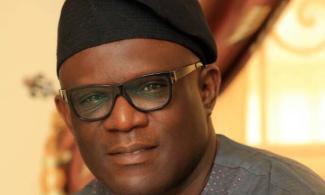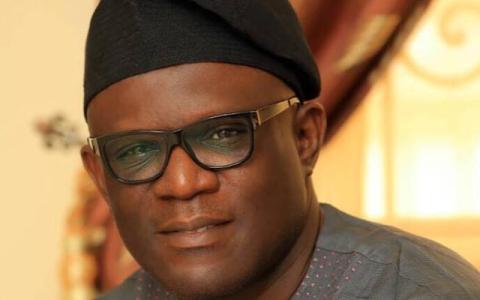
Thus, the behavioural attitude of counterfeited dubiousness typifies circumstances where dubiousness is driven by an intent to knowingly deceive others or the public.

Who is fooling who? When two individuals with good eyesight viewed a black object but one individual said it was black, and the other said it was white, we might reasonably conclude that the person who described the black object as white was being dubious. We could say that the individual was simply mischievous about the description or grossly dishonest. Our description of the individual would certainly be different if the circumstances involved over one hundred persons and only one person described the black object as white. The singular description of the black object as white by the individual would certainly transcend dubiousness. His dubiousness would most probably be overreached by the wonderment of his ashamedness and untruthfulness and become a false dubiousness. The state of false dubiousness is the state where I say dubiousness translates to counterfeited dubiousness. Every counterfeit is driven by false pretence or with an intent to defraud. Thus, the behavioural attitude of counterfeited dubiousness typifies circumstances where dubiousness is driven by an intent to knowingly deceive others or the public.
When we talk about aggrieved aspirants, there are different colourations of aspirants. I characterize the aggrieved aspirants in APC, Ondo State as (a) genuine, (b) dubious, and (c) counterfeited dubious. To understand these characterisations, we need to revisit the background and the events leading to the crooked APC primary elections in Ondo State. Prior to the primary elections aspirants could be grouped under three main blocs at the state party level, namely, (a) those supported by the Party’s State Executive, (b) those supported by the “authentic” Party’s State Executive, and (c) those who considered themselves as independents but craved the support of the Party’s State Executive and the members of the Party. At the national party level, there were two major power brokers – the national power brokers represented by the Party’s National Working Committee (NWC), and the state power brokers represented by the State Government. It is noteworthy that some aspirants across the three main blocs at the state level are influential and enjoyed the sympathy of the national power brokers, some had the total backing of the state power broker, and some were totally dependent on the party delegates and were “god fatherless.”
Early in the year there was a confluence of power brokers in the state. The national power brokers and state power brokers had unity of purpose and unity of outcome. This was the case during the state’s Party congresses. The state power brokers were able to select, monopolise and entrenched their “own men and women” as members of the Party’s Executive Committee at the ward, local government and state levels. Given the confluence of power brokers over the affairs of the Party, the state power brokers had mainly and prematurely selected and monopolised all the elective positions at the state and national levels for the forthcoming general elections in favour of some of their preferred aspirants. These preferred aspirants had taken their candidatures for granted whilst some disfavoured aspirants had decided that it was not even worthwhile to contest the primary elections. However, a new Sheriff came to town along the line, and there was a whole new ball game. The unitary cords of the national and state power brokers was consequently disentantled. There was no longer unity of purpose and unity of outcome among the national and state power brokers. The absence of confluence of understanding between the national and state power brokers offered two of the three main blocs (the blocs supported by the “authentic” Party’s State Executive and those who considered themselves as independents) at the state level a temporary political life line.
To the innocent bystander, the protracted argument about the electoral procedure or mode of election to be adopted for the APC primary election was a mere democratic debate made in good faith. The contrary was the case. The Party’s State Executive wanted “indirect primary election” to concretise the gains made during the congresses. The “authentic” Party’s State Executive favoured “direct primary election” to negate the gains made by the State Executive during the congresses. The national power broker had sympathy for the sponsors of the “authentic” Party’s State Executive because of the ruthless one sidedness of the State’s Executive Committee and the apparent willingness, if not desperation of the state power brokers to dislodge those who were perceived as their political enemies from their existing elective positions or prevent them from opportunities to secure elective positions on the Party’s platform. The third bloc was at the mercy of the Party’s delegates. At the end of the day, the national power brokers attempted to protect all the three main blocs by adopting direct primary election for the state in the interest of fairness and justice. That was, nevertheless, not the end of the story. While the national power brokers had the final say concerning the decision making, the state power brokers had the the final say concerning the implementation of the decision.
Upon the realisation by the national power brokers that the state power brokers had planned to employ the machinery of the Party’s structure in the state to influence the primary
election and impose their original will to select and monopolise the Party’s candidates for the national and state elective positions the national power brokers reacted. They moved fast to counter the state power brokers by presenting the serving senators with automatic tickets. It should be noted that it was cleared that if the national power brokers had not done so, the state power brokers would have had their way and imposed their preferred aspirants on the other aspirants. The national power brokers, however, did not want to be “selfish” and decided to test the water by attempting to organise direct primary elections in respect of the House of Representatives and House of Assembly. The outcome of the test was that the state power brokers bitterly and ruthlessly local enforcement agencies and political thugs to bulldoze all other aspirants except their favoured aspirants from the electoral space and declared all their preferred aspirants as winners. The national power brokers rejected the illegal results and balkanized the House of Representatives and House of Assembly’s positions between the favoured aspirants of the national power brokers and the preferred aspirants of the state power brokers. The third bloc comprising the independents who were “god fatherless” became the overall losers.
When we talk about the aggrieved aspirants in APC Ondo, the “genuine aspirants” are those who were independent and “god fatherless.” The dubious aggrieved aspirants were those who expected to be favoured by the state power brokers but were disappointed. The “counterfeited dubious aspirants” were those whose names were originally presented as winners by the state power brokers through a blatantly rigged pseudo electoral process but were removed by the national power brokers. They knew they were blatantly imposed on other aspirants and fraudulently presented as winners by the state power brokers, and unashamedly insulting the national power brokers. They claimed the national power broker imposed candidates on the Party in circumstances in which they were prepared to benefit from acts of impositions by the state power brokers.
Presently, some of the genuine aspirants, dubious aspirants and counterfeited dubious aspirants have left the APC for another political party to fulfil their political aspirations. Some with equanimity and others with mischievous tantrums. Unfortunately, it is the counterfeited dubious aspirants that are most vociferous claiming that they were robbed of their impending “victories” at the botched primary elections as if their expected “victories” were not a product of undemocratic blatant planned imposition.
The bottom line is that the counterfeited dubious aspirants’ claim of victimization is counterfeit. It is plainly false. Are you awake?
Nat Adojutelegan, PhD
APC, Ondo North Senatorial Aspirant